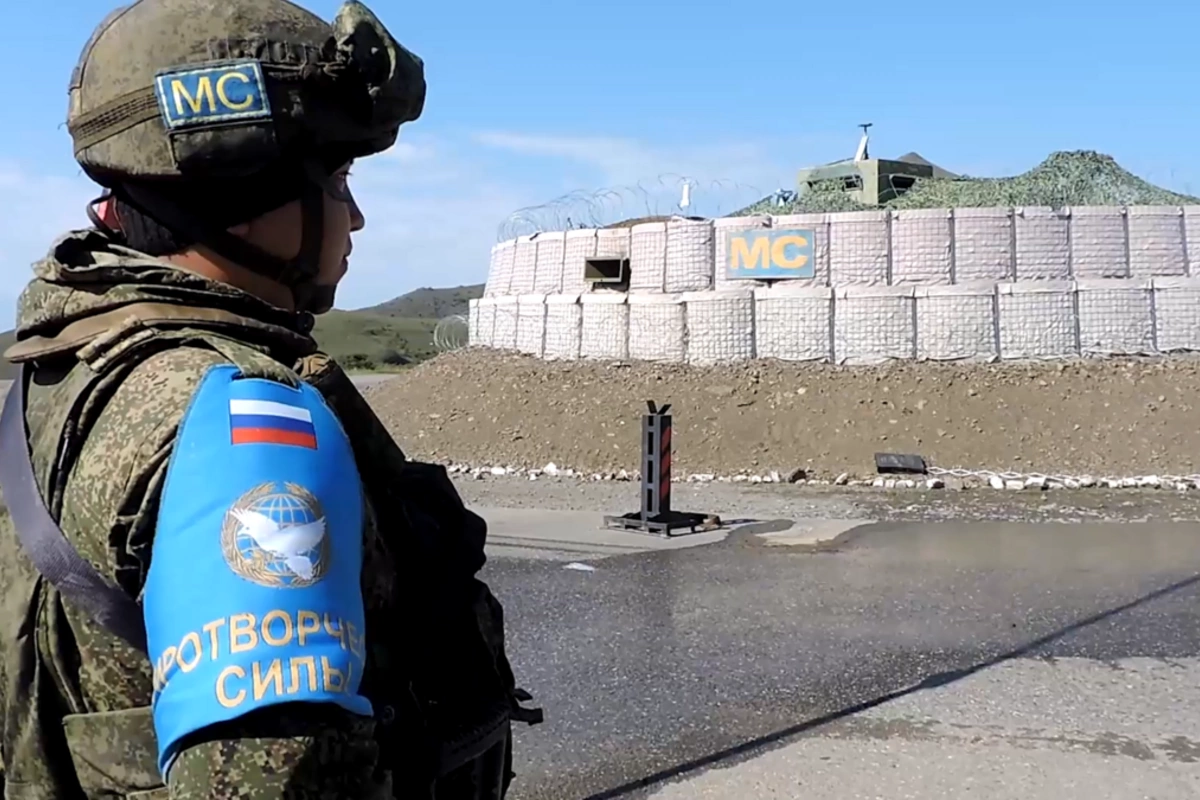
Russia has started a pull-out of its troops from Azerbaijan, implying Moscow’s acceptance that their peacekeeping role in Karabakh is now irrelevant.
Image: mil.ru
Azerbaijan’s ‘normalization’ of its Karabakh reconquest has marked another milestone as Russia announced that its peacekeeping force has started its withdrawal from the region. Moscow had sent troops to the region in November 2020 as Azerbaijan was decisively winning the Second Karabakh War, and their installation as peacekeepers was enshrined as part of the terms of the tripartite agreement that brought an abrupt ceasefire to that war.
The main stated purpose of the Russian force was to ensure that the ceasefire would hold. And to protect Karabakh Armenians: having ethnically cleansed and illegally occupied most of Karabakh for three decades, the latter group was afraid of reprisal attacks. At the time, many observers were skeptical that the troops would ever leave, some analysts predicting that their arrival presaged a new era of Russian meddling in the Caucasus—adding to Moscow’s continuing occupation of territory in Georgia. However, the force maintained a remarkable degree of neutrality over the subsequent three years, refusing to take active positions on specific issues as they developed. Most importantly, this led to complaints from Armenians who felt that the force should have done more to keep open the direct trade link between Armenia and the main Karabakh Armenian settlements after the Lachin Road became very heavily controlled by so-called Eco-protesters.
In July 2023, after one of many meetings of the Armenian and Azerbaijani heads of state to iron out progress towards a normalization of relations, Moscow stated that it “respect[ed] the sovereign decision of the Armenian leadership; however, this radically changes the fundamental conditions [for its peacekeepers]”—essentially stating that the Russian soldiers would not intervene in any upsurge in conflict. At the time, some observers perceived this as an attempt to push the deal-making back from an EU-sponsored process towards one based around Moscow’s lead. However, in retrospect, it was truer than anyone imagined. Thus, despite press indignation in some quarters, the Russian Peacekeepers made no attempt to intervene when (on 19-20 September 2023) Azerbaijan made a lightning strike to secure control over rump-NK[1].
In the aftermath of Baku’s audacious move, Azerbaijan claimed to have put in place all necessary guarantees for the safety of Karabakh Armenians who wished to stay. However, the community left en masse, and by the end of September 2023, virtually all had moved to Armenia or beyond. Though Baku did not attempt to prevent such an exodus, Moscow credited the Russian peacekeepers with preventing any danger to their departure.
Initially, it was hoped that, once the dust had settled, many of the Karabakh Armenians would return to their homes. Azerbaijan promised to protect property in the interim, and the Russian peacekeepers stayed on to ensure that this happened safely—as well as being ready to ensure longer-term security for returnees once they had settled in again.
However, distrust of Azerbaijan remained, not helped by Baku retaining the right to prosecute those it considered guilty of 1990s war crimes—which potentially implicated many families. Also, the Yerevan government pledged to integrate all those wishing to stay in Armenia. So, the return that Baku had predicted never happened, and six months on, with Russia still at war in Ukraine, it’s likely that the Kremlin has decided that there’s no point waiting any longer.
Reports of Russia’s decision to remove the peacekeepers were initially considered rumours. However, Kremlin Press Secretary Dmitry Peskov confirmed the news in a press release on 17 April by Tass.
The decision marks yet another important milestone for Azerbaijan in its long attempt to regain and exercise full sovereignty over the whole of its territory.
[1] Ie the area of former Nagorno Karabakh that had not been restored to full Azerbaijani control following the 2020 war
Share on social media